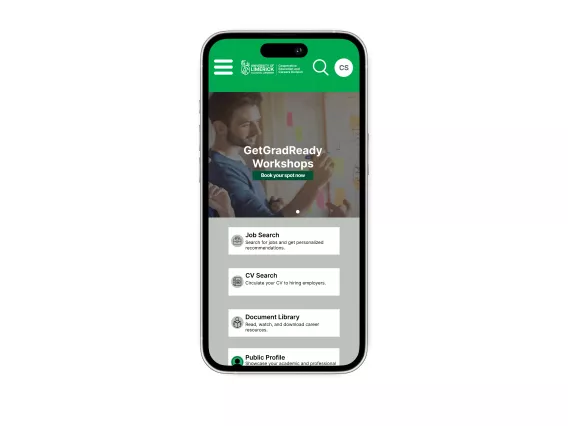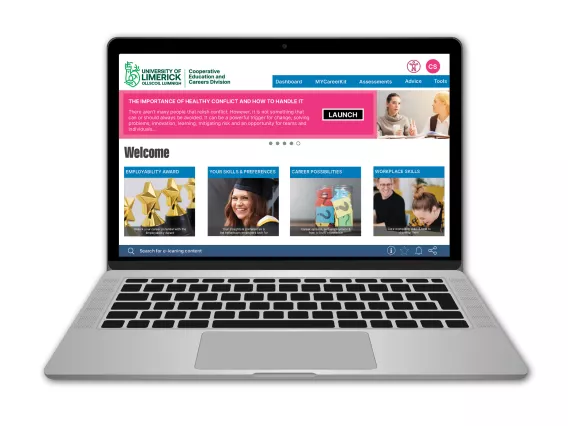
Looking for career advice? The Careers Service offers a number of supports to students from careers development programmes, to one-to-one consultations. Our goal is to provide you with the guidance and tools you need to navigate your career path successfully.
5 Steps to start your career search
Every career journey is unique and there is no one-size-fits-all approach, however we have put together a short list of things which can get you on the right track.
Step 1: Understanding yourself
Self-assessment is always the starting point for career planning. This involves finding answers to the following questions:
- What am I good at? (Yours skills)
- What interests me? (Your interests)
- What motivates me? (Your values)
- What do I have to offer an employer? (Your qualifications/experience)
Step 2: Researching your options
Now that you have a good understanding of your interests, skills and values, you are in a position to explore various career options and relate them to your profile.
Firstly, you need to decide if you want to find a job, continue with your studies, or take time out before starting your career. If your decision is to find employment, you need to generate a list of jobs that appeal to you and research these careers carefully.
For details of upcoming Careers events to help you with your career planning and research, check out MyCareerPath.
Don't miss the UL Careers Fair, a unique opportunity to meet 160+ potential employers on-campus.
Our publications Careers by Degrees and Graduate Outcomes Surveys can give you more information about careers options related to your degree or what other graduates are doing with similar qualifications to yours.
There are also plenty of booklets available from the Careers Resource Area (E0019) to help you research your options.
Step 3: Making decisions
Now that you know more about yourself and the options open to you, you need to ask yourself the following questions in order to help you make your choice:
- Which career option is most attractive to me?
- What does the work involve?
- What qualifications are required?
- Do I have the appropriate set of skills?
- Are there job opportunities in this area?
- What are the promotional prospects?
- If jobs are limited in this area, what are the related areas?
Based on your answers to these questions, and knowledge of your profile, you should now be able to draw up a short-list of your career options.
Step 4: Implementing your decisions
If you have decided on your preferred career options, you need to start planning and implementing a course of action to convert your choice into reality. Make a list of all the things you need to do, and allocate each a timeframe. Your list should include tasks such as compiling a CV, completing application forms, preparing cover letters, preparing for interviews and keeping records of applications.
Remember career plans are not rigid. They need to be monitored and reviewed regularly as circumstances change. Ask yourself:
- Have I made progress with my applications?
- Have events changed?
- How do I feel about my current prospects?
- Are there any other steps that I can take to achieve my objective?
Finally remember you are never alone. You can always contact the Careers Service or book a careers consultation for advice at any stage of your career planning process
Contact Details
Cooperative Education: +353-61-202044 | coop.info@ul.ie
Careers Services: +353-61-202451 | careers@ul.ie
School Placement: +353-61-202478 | schoolplacement@ul.ie
Address
Cooperative Education & Careers Division,
University of Limerick
Limerick
V94 T9PX
Ireland
Office Location: The offices of the Cooperative Education & Careers Division are located in Room E0007 and Room E0019, in the Main Building. Visitors should come to the University main reception.


